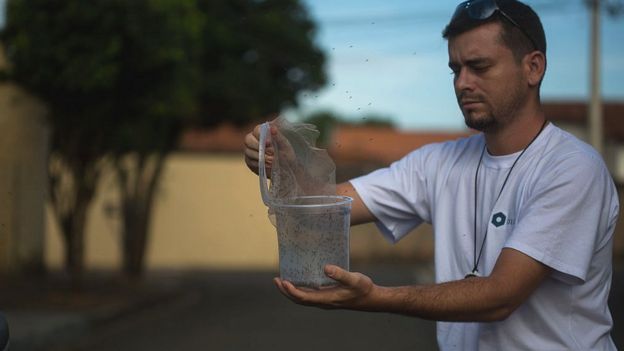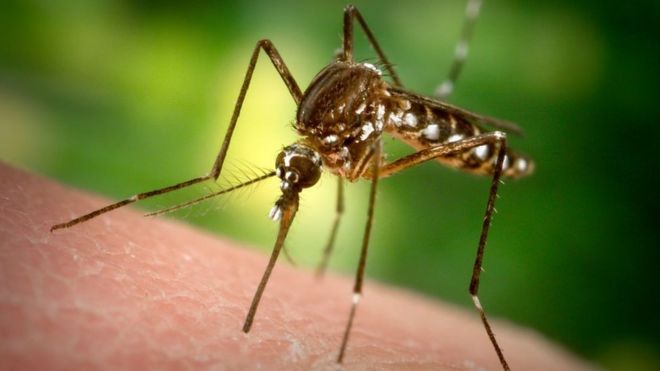Taking the Bite Out of Mosquitoes
"With all the urgent crises facing our nation and the State of Florida -- the COVID-19 pandemic, racial injustice, climate change -- the administration has used tax dollars and government resources for a Jurassic Park experiment." Jaydee Hanson, policy director, International Center for Technology Assessment and Center for Food Safety
"It’s gone extremely well. We have released over a billion of our mosquitoes over the years. There is no potential for risk to the environment or humans." Kevin Gorman, Oxitec scientist
"The mosquitoes created in a lab have not gone through a natural selection process, in which only the fittest survive and mate. Once they are released in the natural environment, will they be as fit as the naturally occurring males and able to outcompete them for mates?" "An ecosystem is so complicated and involves so many species, it would be almost impossible to test them all in advance in a lab." Max Moreno, expert in mosquito-borne diseases, Indiana University
 |
| A biologist in Brazil releases mosquitoes to combat a Zika outbreak Getty Images |
A project is underway in Florida, approved by authorities, to test if a genetically modified mosquito acts as an improved alternative to insecticides to control the spread of Aedes aegypti, the yellow fever mosquito. Known to bite to obtain blood to mature her eggs, the female mosquito spreads a number of exotic diseases like dengue fever, zika and chikungunya.
A British-based lab, Oxitec, which created the mosquito named OX5034, succeeded in altering female mosquitoes to produce female offspring destined to die in their larval stage, thus preventing them from hatching and maturing to the point of biting for blood and successfully reproducing. Male mosquitoes, which are not disease carriers, have been programmed as well, to kill female mosquitoes.
 |
| The aim is to reduce the population of Aedes aegypti mosquitoes Getty |
The company's promotions have emphasized that the genetically altered mosquitoes will not bite, despite which a public backlash against the experiment has arisen fiercely opposed to the experiment, with some residents stating they will not be treated as "guinea pigs" with the "Robo-Frankenstein" mosquito.
The concern among environmental activists is that a massive population of mosquitoes released for any purpose could result in a detrimental effect on wildlife, endangering bird species, insects and mammals that feed on mosquitoes.
This is not the first occasion when Oxitec's altered mosquitoes have been put into action for the purpose of battling mosquito-borne disease.
The first such tests with the altered mosquitoes took place in May of 2018 when the mosquitoes were released within four communities in the city of Indalatuba, Brazil.There, success was realized when the outcome resulted in a reduction in the numbers of Aedes aegypti of 95% in a trial conducted in an urban area of Brazil.
"This is an exciting development because it represents the ground-breaking work of hundreds of passionate people over more than a decade in multiple countries, all of whom want to protect communities from dengue, Zika, yellow fever, and other vector-borne diseases." Oxitec CEO Grey Frandsen
Labels: Disease Prevention, Experiments, Florida, Infection Control, Mosquitoes

0 Comments:
Post a Comment
<< Home